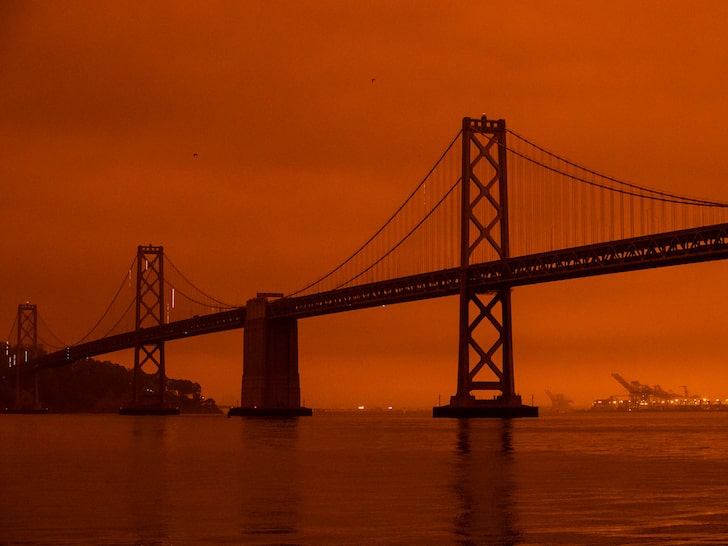“It’s 9:30.”
“Are you sure?!”
As I woke up this past Wednesday, September 9, 2020, I blearily listened to Heather’s one-sided exchange with the alarm on her phone as we woke up to an apartment nearly as dark as when we went to bed the night before. Briefly looking outside before work, we were met with roiling, putrid skies that cast a dim orange light on the world below.
We knew it had to have something to do with the recent wildfires. California, and the West Coast more generally, is in the middle of its worst fire season in history, with 3.4 million acres already consumed and three more months before the rainy season arrives (just nine months ago, I predicted in our annual end-of-year post that the past decade might be remembered as when California began to become unlivable). Strangely, though, there was not even the slightest smell of smoke, which had been nearly omnipresent in the past weeks. This was because, as we later learned, the smoke and ash from a fire north of the Bay Area had been blown our way by strong winds, but had stayed in the upper atmosphere; closer to ground, a marine layer of cooler air had slipped in. This was why our air quality was actually fairly good; it was also why the orange glow was all-encompassing: the smoke absorbed the blues of the sun’s spectrum, leaving reds and yellows to reflect off the larger water particles in the lower atmosphere.
Heather and I went about our not-quite-day, sending friends and family videos of the eerie landscape and, in my case, making obligatory Lord of the Rings references. Yet for all that, one of my very first reactions, contained within a text to fellow Concerning History author Francis, has stuck with me:
“Vesuvius has erupted.”
It was a natural (and quick) leap for me to make. Massive clouds of ash blocking out the sun, turning noon to dusk? As a student of ancient history, I could see the last day of Pompeii written all over our bizarre circumstances. The reality of our situation, of course, paled in comparison to that doomed Roman town. We were hundreds of miles away from the calamity responsible; indeed, our apartment is in an area with very low fire risk. Instead, my mind kept wandering to thoughts of the Roman author Pliny the Younger, watching Vesuvius erupt from his villa across the Bay of Naples, fascinated and horrified, but never really part of the drama unfolding even as his father Pliny the Elder attempted a naval rescue and suffocated in volcanic gas.
It has become trite in recent years to remark that we are witnessing history. We always are, of course, but the presidency of Donald Trump, and it’s (hopefully) inevitable end, will rightly loom large in any future chronicle of the American republic. That said, witnessing natural history in this way is something else entirely. To step out of your door and see the world around you so obviously wrong, and yet have the luxury to ponder rather than fleeing for your life, is unsettling and humbling in the extreme. It reminds us that we humans do not live in a vacuum, and while it is our actions as a species collectively that have so unbalanced nature this time around, individually we are quite little players in a wide world, after all.
